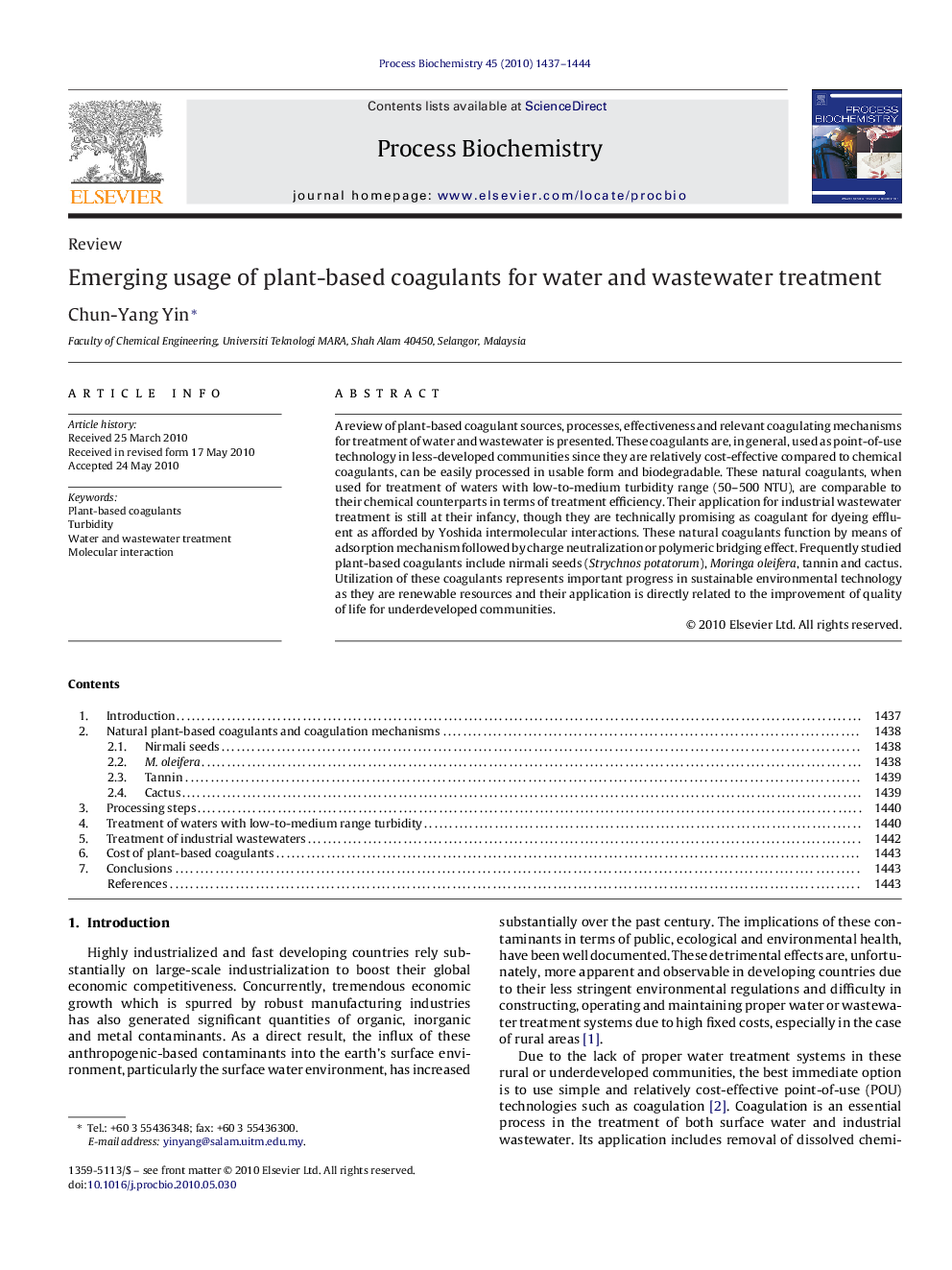| کد مقاله | کد نشریه | سال انتشار | مقاله انگلیسی | نسخه تمام متن |
|---|---|---|---|---|
| 34962 | 45064 | 2010 | 8 صفحه PDF | دانلود رایگان |

A review of plant-based coagulant sources, processes, effectiveness and relevant coagulating mechanisms for treatment of water and wastewater is presented. These coagulants are, in general, used as point-of-use technology in less-developed communities since they are relatively cost-effective compared to chemical coagulants, can be easily processed in usable form and biodegradable. These natural coagulants, when used for treatment of waters with low-to-medium turbidity range (50–500 NTU), are comparable to their chemical counterparts in terms of treatment efficiency. Their application for industrial wastewater treatment is still at their infancy, though they are technically promising as coagulant for dyeing effluent as afforded by Yoshida intermolecular interactions. These natural coagulants function by means of adsorption mechanism followed by charge neutralization or polymeric bridging effect. Frequently studied plant-based coagulants include nirmali seeds (Strychnos potatorum), Moringa oleifera, tannin and cactus. Utilization of these coagulants represents important progress in sustainable environmental technology as they are renewable resources and their application is directly related to the improvement of quality of life for underdeveloped communities.
Journal: Process Biochemistry - Volume 45, Issue 9, September 2010, Pages 1437–1444